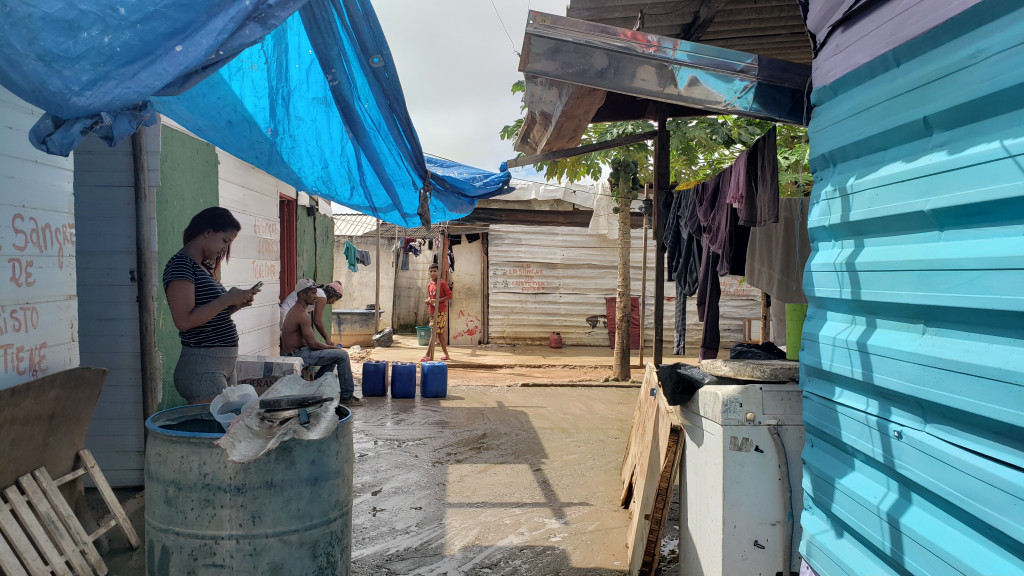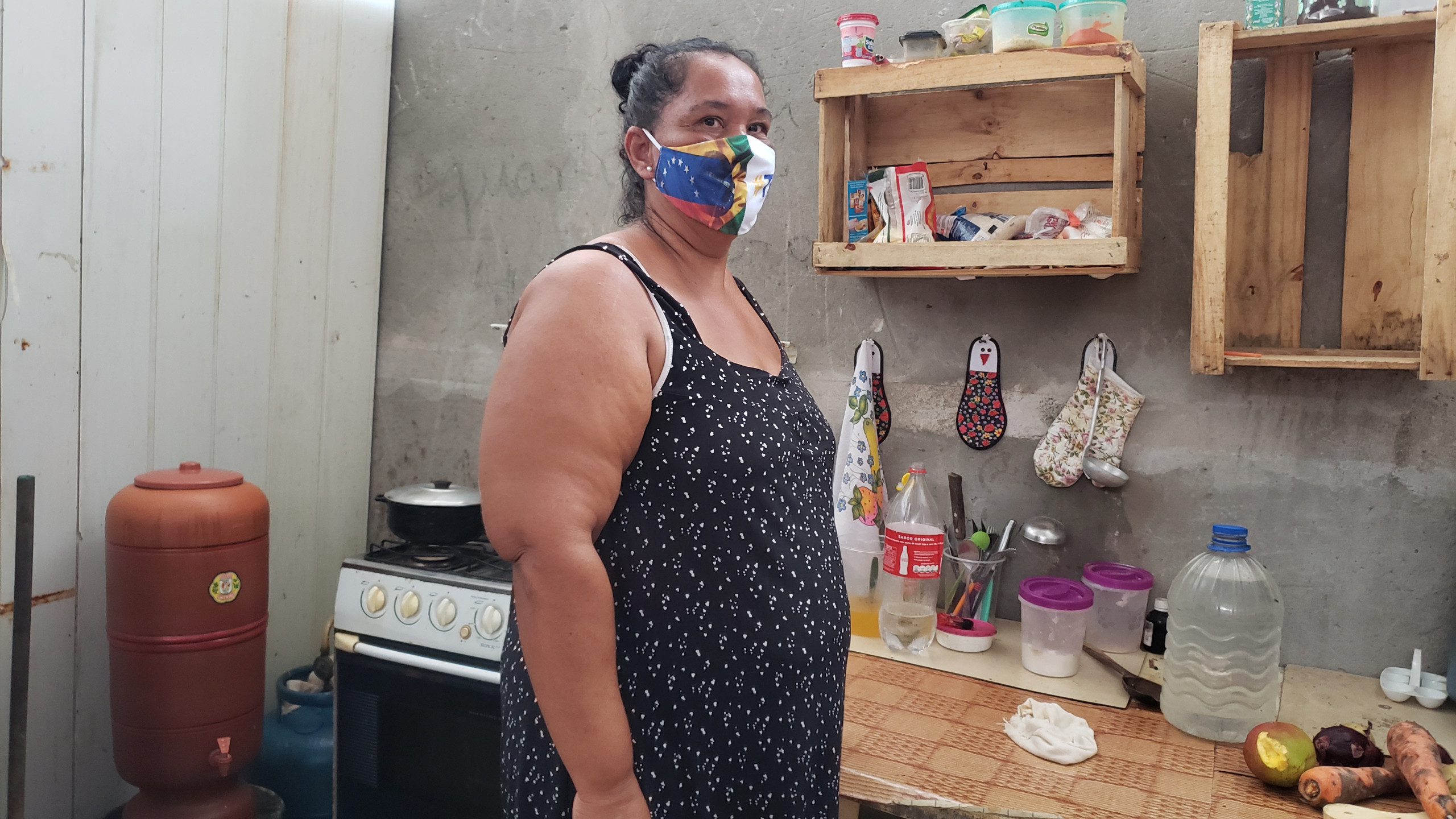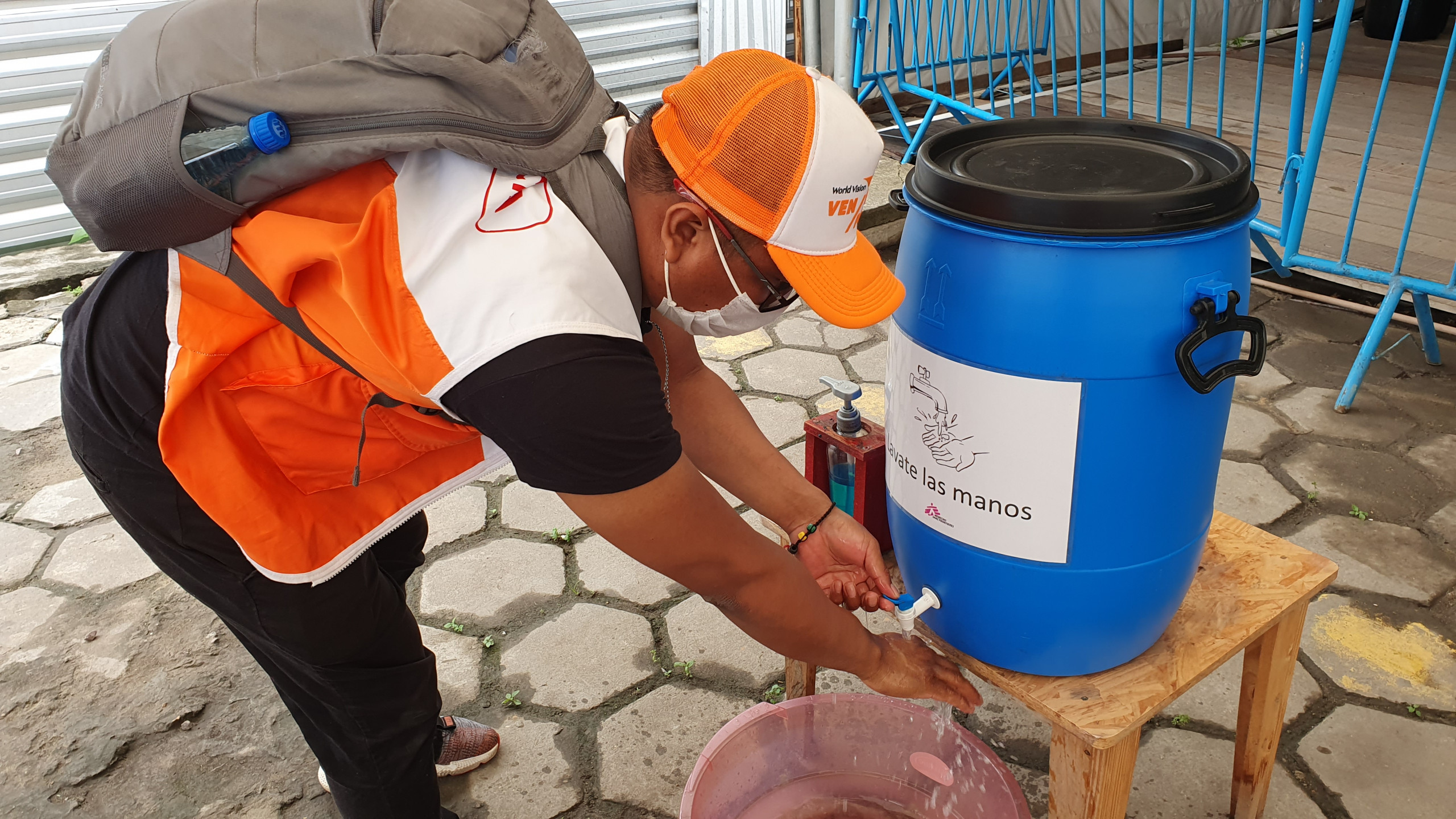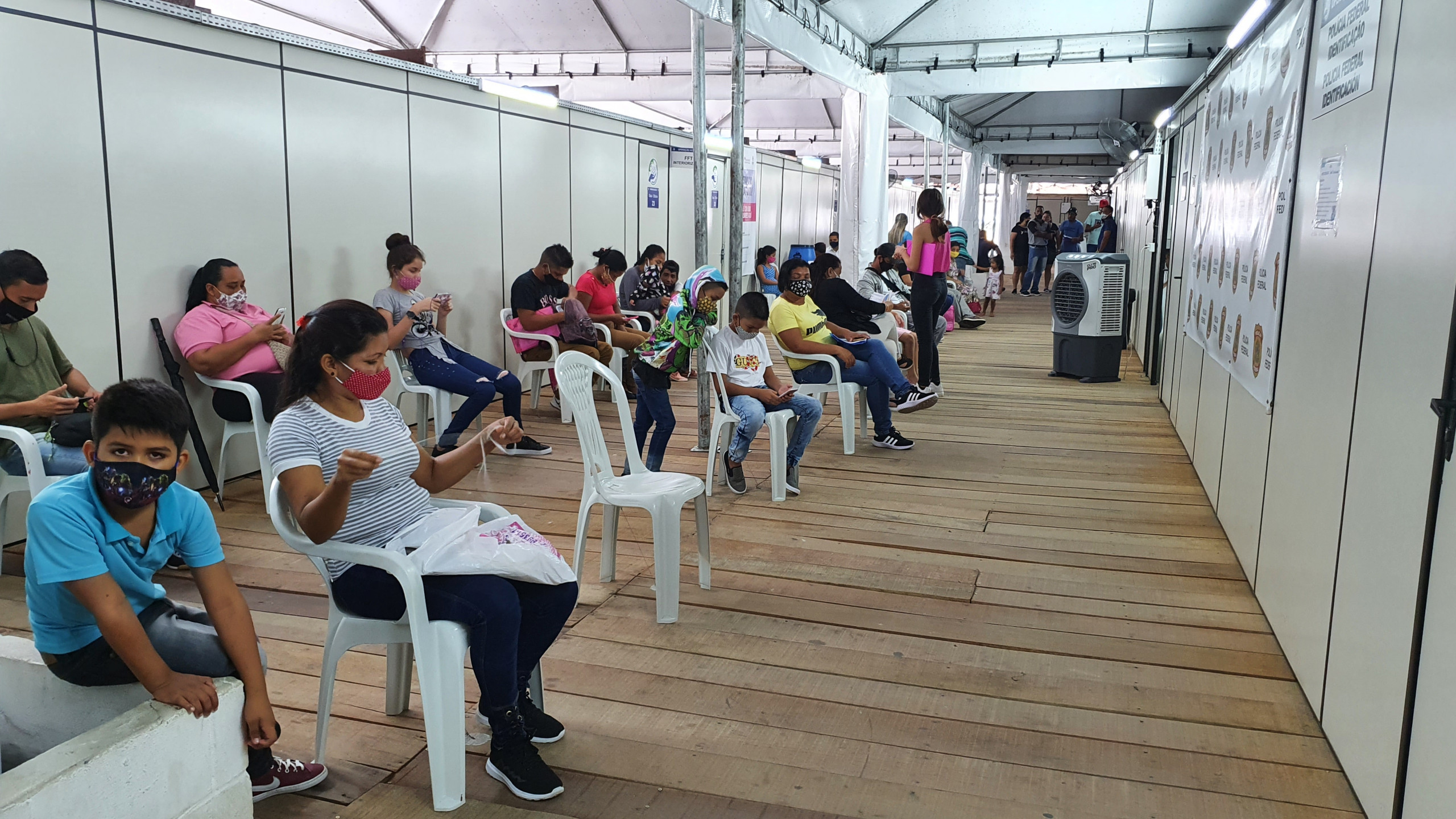Boa Vista, Roraima State, Northern Region, Brazil
In collaboration with

July 2020 – February 2022
Provide hygienic facilities in Boa Vista, where displaced Venezuelans are crowded. Mobilize society to participate in appropriate hygiene practices to prevent the spread of COVID-19, raising awareness and training citizens.
Objectives
- Expand access to clean water and disseminate relevant information to promote hand hygiene.
- Strengthen the capacities and structure of the city of Boa Vista to respond to the COVID-19 emergency through access to clean water and hygiene products in public spaces.
- Raise awareness and inform citizens about resources and methods for preventing the pandemic and promote hygiene and community health.
- Strengthen local city stakeholders with alternative ways to prevent infection and good practices on using natural resources.
Beneficiaries
100,000 direct
5,000 children under 15 and 50,000 women.
200,000 indirect
50,000 children under 15 and 100,000 women.
All temporary residents in the area, including the workers in local markets, clients and residents in the region.

On the ground
There is an intense flow of refugees who end up overcrowded in precarious facilities and with restricted access to public drinking water and sanitation services. The need for clean water and hygiene facilities is urgent.
In the northern region of Brazil, health services are very limited. On the other hand, the flow of thousands of Venezuelan migrants and refugees and the Covid-19 crisis have created a situation of extreme health risk. A pocket of vulnerability has been identified in the capital of Roraima, Boa Vista, with more than 1,842 confirmed cases and 70 deaths until the 23rd May 2020. According to local authorities, municipal health services for coronavirus patients are overwhelmed.
Since 2017, Boa Vista is the city that has received the most intense flow of Venezuelan migrants and refugees. The result is overcrowding, precarious facilities, mainly in native shelters and restricted access to public health services, drinking water and sanitation. In these communities the need for clean water and hygiene facilities is acute.

In detail
The city of Boa Vista will be prepared to respond to emergency situations through public spaces for hand hygiene, access to clean water and the dissemination of informative content.
The acquisition, transport and installation of the portable washbasins in the city will follow. The chosen basin model was designed by Brazilian engineers to provide clean water to the homeless population in the city of Rio de Janeiro. It has been recognized as a low cost and effective model.
The tank has a capacity for 75 hand washes. If one tank if fully used every day, it is possible to obtain 2,250 hand washes per month. With 100 portable washbasins, it is possible to guarantee 225,000 hand washes per month.
People will then be informed about preventive measures through a communication strategy. The content will be relevant information about Covid-19 prevention, hygiene and the health of the community, and the conscious use of water and other natural resources.
Perspectives of sustainability
The washbasins are easy to use and do not require high technical expertise for their maintenance. They will be managed by the community itself, which will be trained by World Vision Brazil for their long-term use, so that it can integrate them as their own in the future.




